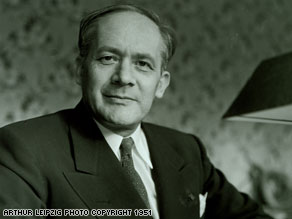We Can Do Better:
Holocaust Remembrance Day
For Sunday April 22, 2012
Lectionary Readings (Revised Common Lectionary, Year B)
Acts 3:12–19
Psalm 4
1 John 3:1–7
Luke 24:36b–48
Thanks to a person who's all but forgotten to history (see below), this week the world commemorates Holocaust Remembrance Day. The readings this week explain why Christians should be leaders in this vigil.
After his resurrection, Jesus told his followers to spread his message "to all nations, beginning at Jerusalem" (Luke 24:48; cf. Matthew 28:19). In his parallel passage, Mark renders the universal scope more emphatic by writing "to all the world [and] to all creation" (Mark 16:15). Similarly, in Luke's book of Acts, Jesus told his timid followers, "you will be my witnesses in Jerusalem, and in all Judea and Samaria, and to the ends of the earth" (Acts 1:8). And this is what happened — Acts begins in Jerusalem and ends in Rome.
In the lectionary this week, Peter concludes his sermon by proclaiming that in Jesus "all peoples on earth will be blessed" by God (Acts 3:25 = Genesis 22:18, 26:4), which global promise was first made to Abraham 4,000 years ago (Genesis 12:3). The story of Jesus, says Luke, anticipates the "restoration of all things" (Acts 3:21). God knows every name in every nation.
Two radical corollaries follow from this robustly global vision — the decentralization of your geography and the reorientation of your politics.
First, Christians are geographic, cultural, national and ethnic egalitarians; for us there's no geographic center of the world, but only a constellation of points equidistant from the heart of God. Proclaiming that God lavishly loves all the world, each person, and every place, the gospel doesn't privilege any nation as exceptional.
No one should think they are forgotten, and no one can claim special favor.
 |
Raphael Lemkin. |
Much has been written about American exceptionalism. In terms of economic, political, military, scientific and cultural dominance, America is unrivaled, and in that sense "exceptional" (although there's no reason to think that will last forever). But from a theological or Christian point of view, America is no more "exceptional" in God's eyes than any other country. While allowing for a natural and wholesome love, even pride, in your own country ("there's no place like home"), geo-political egalitarianism subverts the claim of absolute allegiance to any one nation.
The claims of the gospel are absolute and unconditional; the claims of the nation and state are relative and conditional.
Second, because of this, Christian global vision asks me to care as much about any and every country and its people as I do my own. Christians grieve the deaths of Iraqis and Congolese as much as Americans. This implies that our politics become reoriented, non-aligned, and unpredictable by normal canons. No state or political party can indulge in the self-sacrifice that Jesus demands when he asks his followers to place the interests of others ahead of their own.
On Holocaust Remembrance Day we honor the memory of the six million Jews who were systematically exterminated by the Nazis in 35 countries, and also the additional three to four million people whom the Nazis deemed undesirable and inferior "enemies of the state" — gays, gypsies, Jehovah's Witnesses, Soviet prisoners of war, Slavic people, the physically and mentally disabled, and political dissidents of every sort.
The term “genocide” has a specific history. The word was coined by the eccentric and brilliant Raphael Lemkin, a Polish Jew who single-handedly thrust the issue of genocide onto the world stage. On October 16, 1950, after seventeen years of Lemkin’s tireless labor, the Convention on the Prevention and Punishment of the Crime of Genocide was finally ratified by the United Nations. The United States signed thirty-six years later on February 11, 1986, after ninety-seven nations had already ratified the convention.
When Lemkin died of a heart attack at the age of fifty-nine on August 28, 1959, he was penniless. Before he died he broadened the notion of genocide beyond the extermination of six million Jews. "Lemkin had nearly completed a magisterial analysis of a long list of historical cases and themes of genocide, which remains unpublished." He expanded genocide to include "the attempted destruction not only of ethnic and religious groups but of political ones, and [thought] that the term should also encompass systematic cultural destruction" (Kiernan).
Yom Hashoah reminds us of other mass murders — a million or more Armenians under the Turks (and 800,000 more exported); two million Cambodians under the Khmer Rouge and Pol Pot; Kurds under Saddam Hussein; Muslims, Croats, and ethnic Albanians under the Serbs; thirty million Chinese under Mao; tens of millions under Soviet atheism; nearly a million ethnic Tutsis and moderate Hutus by extremist Hutus in Rwanda; and in Darfur the Fur, Zaghawa, and Massaleit peoples by the Janjaweed (literally, "devils on horseback") supported by Sudan's government.
The deadliest war of our generation has been the under-reported conflict in the Democratic Republic of the Congo (former Zaire). Since the start of conflicts there in 1996, five million people have perished out of a population of fifty million — a staggering 10% of the population. Over half of those deaths occurred since the war ended in July 2003. The overwhelming majority of the victims were civilians; about half of them were children. Millions more Congolese have fled to neighboring countries as both a cause and consequence of the war. Hundreds of thousands of women have been raped.
In his book Worse Than War; Genocide, Eliminationism, and the Ongoing Assault on Humanity (2009), Daniel Goldhagen describes how 127–175 million people have been "eliminated" in the last century. These people came from all regions of the world, and from all social, economic and political groups. The vast majority of them were killed in their own countries, by their fellow citizens, by willing and non-coerced murderers, and almost never with any substantial dissent. By Goldhagen's count, "mass murder has deeply scarred countries home to 4.4 billion people, two-thirds of the world's population" (273). Civilian deaths and injuries outnumber military ones by a factor of nine to one (573). Eliminationism is thus "worse than war."
No person or people is immune from the horrors of holocaust, either as a perpetrator or a dissenter. Solzhenitsyn once observed in his Gulag Archipelago that it would be nice if we could neatly divide the world between the insidiously evil and the obviously good. Instead, he wrote, “the line dividing good and evil cuts through the heart of every human being.” A Holocaust survivor once told me that he didn't believe in the "collective guilt" of an entire people.
 |
Congo refugees. |
There are good "bad" people. A Holocaust survivor once described to me how a young Nazi guard secretly gave him a sandwich, and as he did, tears streamed down the soldier's cheeks. Conversely, there are bad "good" people. In his book Unspeakable Acts, Ordinary People: The Dynamics of Torture, John Conroy says that we tend to caricature torturers as sadistic monsters. But “there is ample evidence that most torturers are normal people, that most of us could be the barbarians of our dreams as easily as we could be the victim.”
The Spaniards came to America for gold and glory, but they also came for God, to spread the gospel. In a letter to Pope Alexander VI, February 1502, Columbus wrote of his goal in the new world: “I hope in Our Lord to be able to propagate His holy name and His Gospel throughout the universe.” The natives they encountered were deemed pagan and subhuman, as their cannibalism and human sacrifices surely "proved." Oviedo, a 16th-century conquistador and historian of the five volume work Natural History of the West Indies, describes the solution to the problem of Indians who did not want to convert:
God is going to destroy them soon… Satan has now been expelled from the Island [Hispaniola]; his influence has disappeared now that most of the Indians are dead… Who can deny that the use of gunpowder against pagans is the burning of incense to our Lord?
Tzvetan Todorov estimates that the Spanish conquest of the Americas killed 70 million people by murder, maltreatment such as slavery, and disease — about 90% of the population. These "good" Christians construed the wholesale genocide of "bad" Native Americans as wholehearted piety.
Genocides don't have to happen. We are not destined to slaughter our neighbor. But when we reduce people to a singular identity (Jew! Gay!), it feeds a sense of fatalism, resignation, and a sense of inevitability about violence. Simplistic labels partition people and civilizations into binary oppositions. They ignore the plural ways that people understand themselves, and obscure what Amartya Sen calls our "diverse diversities." In particular, Sen objects to the "clash of civilizations" thesis made popular by Samuel Huntington. No, we should never concede that civilizations have to clash.
I pray to move to the place described by the Yale theologian Miroslav Volf in his book Exclusion and Embrace: “The theme of divine self-donation for the enemies and their reception into the eternal communion of God… As God does not abandon the godless to their evil but gives the divine self for them in order to receive them into divine communion through atonement, so also should we — whoever our enemies and whoever we may be.” Thus the embrace beyond exclusion — “the will to give ourselves to others and to ‘welcome’ them, to readjust our identities to make space for them, is prior to any judgment about others, except that of identifying them in their humanity.”
For further reflection
* Consider the words of the German pastor Martin Niemoeller (1892–1984), who protested Hitler's anti-semitic measures in person to the fuehrer, was eventually arrested, then imprisoned at Sachsenhausen and Dachau (1937–1945). He once confessed, "It took me a long time to learn that God is not the enemy of my enemies. He is not even the enemy of His enemies."
* Consider the poem ascribed to Niemoeller (although its different versions and exact origins are debated), First They Came. The poem describes the passivity of German intellectuals as the Nazis purged group after group of targeted people.
First they came for the Communists,
— but I was not a communist so I did not speak out.
Then they came for the Socialists and the Trade Unionists,
— but I was neither, so I did not speak out.
Then they came for the Jews,
— but I was not a Jew so I did not speak out.
And when they came for me, there was no one left to speak out for me.
And for further reading see below. Except for the books by Wiesel and Todorov, all of the following are reviewed in the book and film review pages of JwJ.
* Philip Gourevitch, We Wish to Inform You That Tomorrow We Will Be Killed With Our Families; Stories From Rwanda (1998).
* Samantha Power, A Problem From Hell; America and the Age of Genocide (2002).
* Amartya Sen, Identity and Violence; The Illusion of Destiny (2006).
* Brian Steidle, The Devil Came on Horseback; Bearing Witness to the Genocide in Darfur (2007).
* Tzvetan Todorov, The Conquest of America: The Meaning of the Other (1984).
* Elie Wiesel, Night.
* Watch the films Forgiving Dr. Mengele; Paper Clips (about a school project to collect one paper clip for every victim of the Holocaust); and Promises (about Israeli and Palestinian children).
Image credits: (1) CNN.com and (2) Welt Online.





